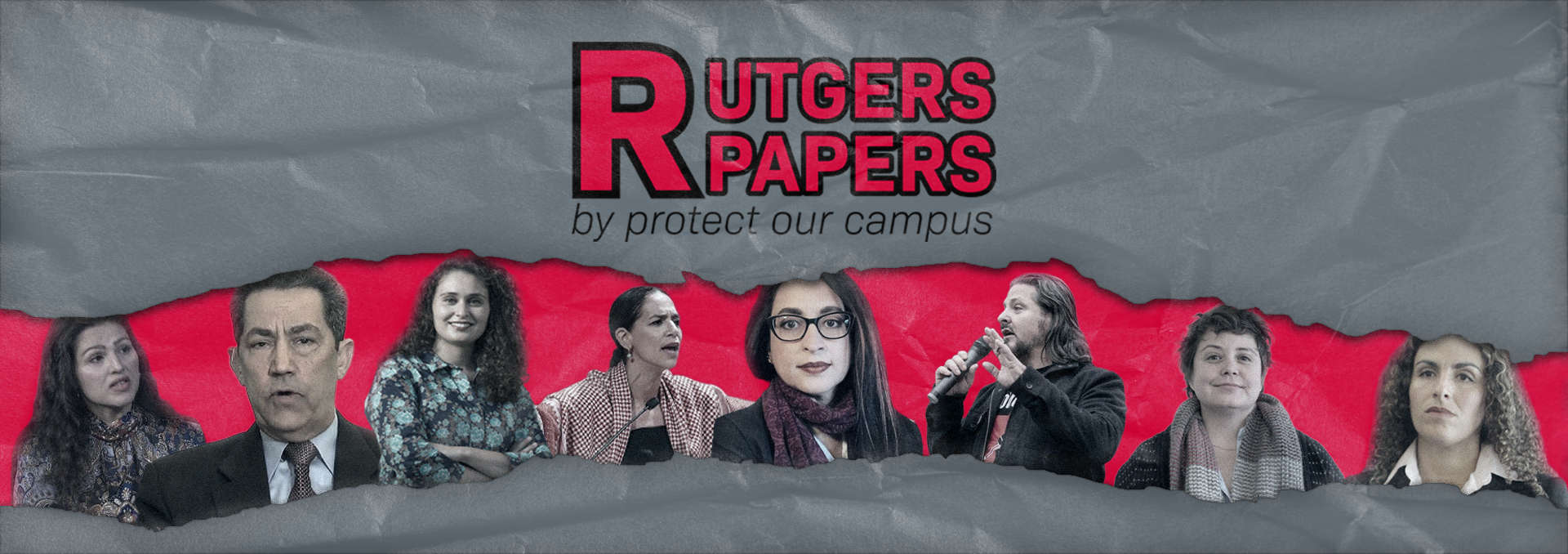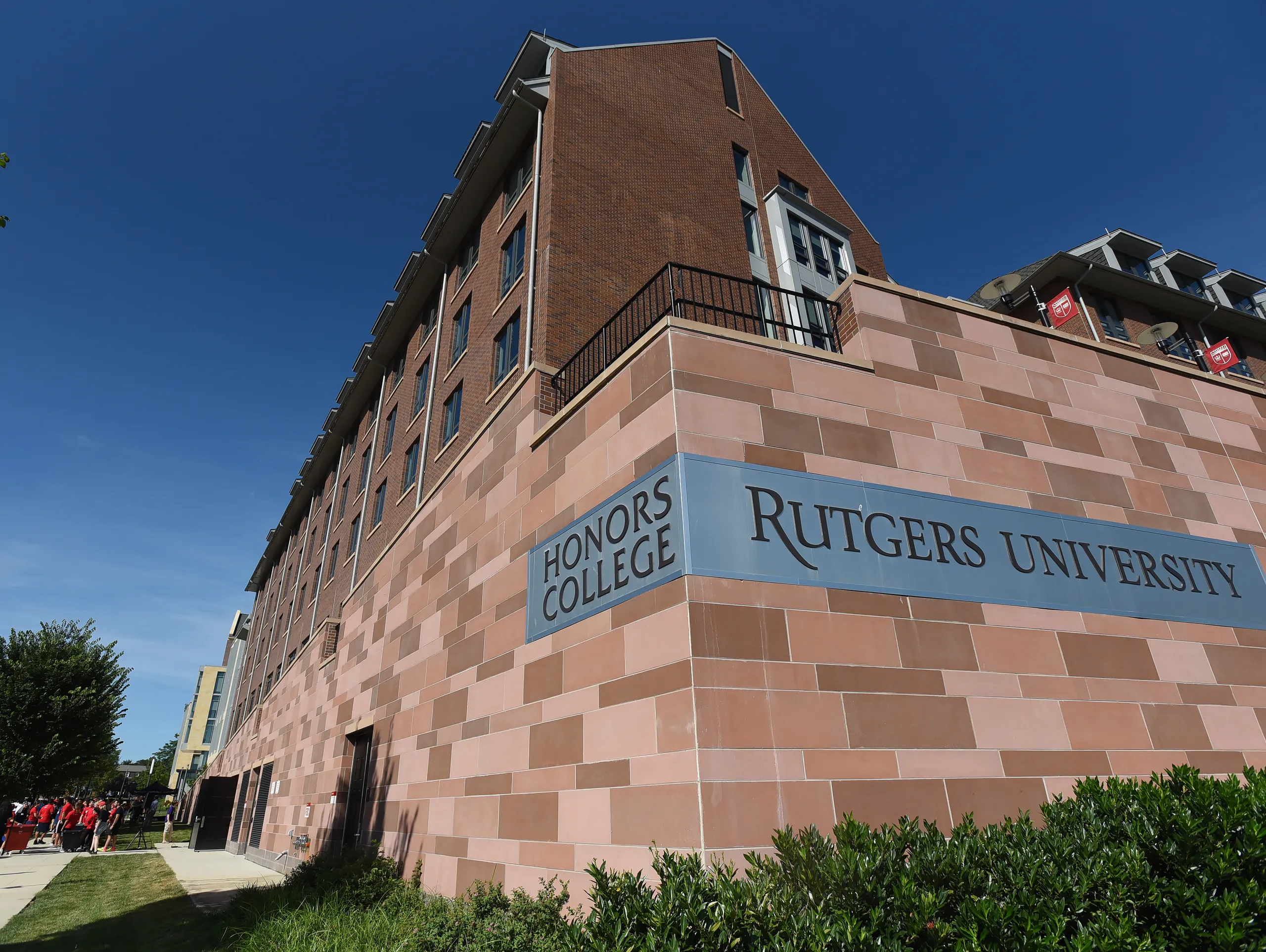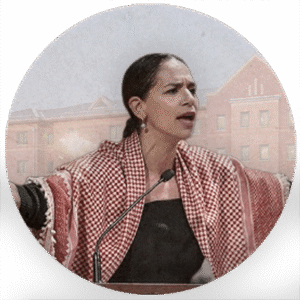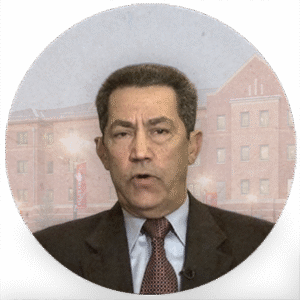
Antisemitism at Rutgers
Rutgers University is on a countdown to collapse. Established 10 years before the United States itself, Rutgers has long stood as a beacon of higher education at its most pristine, not only in the New Jersey area, but across the nation. Today, things are drastically different. The once prestigious university is now mired in controversy and division. With its reputation built on academic rigor, research excellence, and a diverse student body, the university is now making headlines for all the wrong reasons: the normalization of antisemitism, campus radicalization, and faculty ties to extremist ideologies.

Rutgers University is on a countdown to collapse. Established 10 years before the United States itself, Rutgers has long stood as a beacon of higher education at its most pristine, not only in the New Jersey area, but across the nation. Today, things are drastically different. The once prestigious university is now mired in controversy and division. With its reputation built on academic rigor, research excellence, and a diverse student body, the university is now making headlines for all the wrong reasons: the normalization of antisemitism, campus radicalization, and faculty ties to extremist ideologies.
This is not an isolated crisis. It’s a systemic failure—one that threatens the integrity, safety, and future of the university itself.
Their time for facing consequences is now
The Academic Leaders Inciting Extremism
The root cause behind the radical student movement overtaking Rutgers University lies in classroom indoctrination—where radicalization isn’t just tolerated, it’s taught. Professors at Rutgers have been accused of pushing antisemitic narratives, glorifying terrorism, and inserting extremist ideology into unrelated coursework. Some faculty members have reportedly granted academic accommodations or credit for participation in protests, while overlooking violent rhetoric and conduct.

The root cause behind the radical student movement overtaking Rutgers University lies in classroom indoctrination—where radicalization isn’t just tolerated, it’s taught. Professors at Rutgers have been accused of pushing antisemitic narratives, glorifying terrorism, and inserting extremist ideology into unrelated coursework. Some faculty members have reportedly granted academic accommodations or credit for participation in protests, while overlooking violent rhetoric and conduct.
The time to act is now—before more damage is done.
Their time for facing consequences is now
The Trump Administration’s Executive Order
The surge of antisemitism and open support for U.S.-designated terrorist organizations at Rutgers University mirrors a troubling national trend, sparking alarm across American society. From concerned parents and faculty to political leaders, there is now widespread recognition that Rutgers has become a breeding ground for extremism.
In response to this escalating crisis, President Donald Trump signed two executive orders on January 20, 2025. The first, titled “Protecting the United States from Foreign Terrorist and Other National Security and Public Safety Threats,” grants the federal government the authority to identify and deport foreign nationals on U.S. campuses—like Rutgers—who promote terrorist ideologies or incite social unrest. The second executive order targets extremists within academia itself, empowering federal agencies to take disciplinary action—including termination—against professors, even those with tenure, who engage in or promote antisemitic rhetoric.


Zahra Ali
ahra Ali, an Iraqi-born Assistant Professor of Sociology at Rutgers University, has leveraged her academic role to propagate extremist narratives, justify terrorism, and elevate antisemitic rhetoric under the guise of social justice and “decolonial” resistance.

Todd Wolfson
Todd Wolfson, Associate Professor of Journalism and Media Studies at Rutgers University and President of the American Association of University Professors (AAUP), has emerged as a leading voice in the academic radicalization movement

Sahar Aziz
Sahar Aziz, Distinguished Professor of Law and Chancellor’s Social Justice Scholar at Rutgers University Law School, has leveraged her academic position to promote antisemitic narratives, glorify Hamas terrorism, and engage in sustained anti-Israel activism.

Sabreena Ghaffar-Siddiqui
Sabreena Ghaffar-Siddiqui, a sociology and criminology professor at Sheridan College in Ontario, has transformed her academic credentials and DEI affiliations into tools for spreading hatred, defending terrorism, and inciting antisemitism.

Noura Erakat
Noura Erakat, Associate Professor of Africana Studies and Criminal Justice at Rutgers University, has revealed herself as a radical activist who exploits her academic and legal platforms to delegitimize Israel, glorify terrorists, and mainstream extremist, antisemitic narratives under the guise of “human rights advocacy.”

Maya Mikdashi
Maya Mikdashi, Assistant Professor of Women’s, Gender, and Sexuality Studies and Lecturer in the Middle East Studies Program at Rutgers University, has repeatedly used her academic platform to justify terrorism, promote antisemitic narratives, and whitewash Hamas atrocities.

Hamid Abdeljaber
Hamid Abdeljaber, Palestinian writer and Lecturer at the Center for Middle East Studies at Rutgers University, New Brunswick, openly glorifies terrorism, spreads anti-Israel and anti-Western conspiracy theories, and justifies Hamas violence in his public writings and academic work.

Deepa Kumar
Deepa Kumar, Professor of Journalism and Media Studies at Rutgers University, is a longtime activist who has repeatedly used her academic platform to promote anti-Israel narratives, legitimize extremist movements, and undermine factual discourse about terrorism

Antisemitism at Rutgers
At Rutgers University, activism is displacing academics as faculty prioritize political agendas over education. Classrooms once dedicated to scholarship now serve as platforms for extremist narratives, eroding the university’s academic integrity. As a result, Rutgers is losing credibility with students, parents, and peer institutions nationwide.

Damage to Campus Property
At Rutgers, pro-Palestinian protests have led to significant damage across campus, including vandalized academic buildings and defaced public spaces. Protesters have spray-painted anti-Israel slogans, destroyed university property, and left extensive trash and debris after encampments. The repeated destruction has not only disrupted campus operations but also created financial burdens for the university due to costly repairs and clean-up efforts.

Faculty Inaction
Actions create change—words do nothing. As of 2025, Rutgers University’s leadership has offered nothing but empty promises. While administrators claim to oppose antisemitism, they’ve allowed extremist protests, property damage, and open support for terrorism to spread unchecked across campus.

Under Federal Investigation
Due to Rutgers University’s failure to address antisemitic harassment, threats, and vandalism during recent pro-Palestinian protests, it is now under federal investigation by the U.S. Department of Education’s Office for Civil Rights. The investigation cites Rutgers’ inadequate response to complaints from Jewish students, as well as from Palestinian and Muslim students reporting targeted incidents. The OCR found that Rutgers allowed a hostile environment to develop and failed to prevent repeated incidents of discrimination. As a result, the university faces heightened federal oversight and potential penalties for violating Title VI protections.

Campus Safety
The rising hostility at Rutgers University has turned the campus into a zone of fear and intimidation. Jewish students, along with anyone opposing extremist narratives, now face harassment and threats as part of daily campus life. With administrators unwilling to intervene and faculty often encouraging radical activism, Rutgers can no longer ensure a safe or inclusive learning environment.

Reputational Damage
Rutgers University’s reputation as a respected academic institution is collapsing under the strain of rising extremism and antisemitism. Once seen as a leader in higher education, Rutgers now draws national attention for campus unrest, faculty radicalism, and its failure to protect Jewish students. Each day of silence and inaction deepens the damage, making the path to restoring trust and credibility increasingly difficult.

Financial Fallout
Rutgers University is now facing the financial risks of its failures. With a federal investigation underway and Title VI violations under review, the university is at serious risk of losing federal funding and donor support. As national scrutiny intensifies, Rutgers’ financial stability hangs in the balance. Continued inaction could cost the university not just its reputation—but its future.

Academic Decline
At Rutgers University, activism is displacing academics as faculty prioritize political agendas over education. Classrooms once dedicated to scholarship now serve as platforms for extremist narratives, eroding the university’s academic integrity. As a result, Rutgers is losing credibility with students, parents, and peer institutions nationwide.
Share and Spread the Word
Rutgers University is at a breaking point. Extremism has taken hold—not just among student activists, but within the faculty itself. Professors who should be educating the next generation are instead spreading hate, defending agitators, and turning classrooms into platforms for radicalization. All the while, university leadership remains frozen in silence, allowing the crisis to worsen.
This is a call to action—for students, alumni, parents, donors, and federal authorities—to step in where Rutgers’ administration refuses. Without immediate intervention, Rutgers will not be known for academic excellence, but for failure, fear, and betrayal.